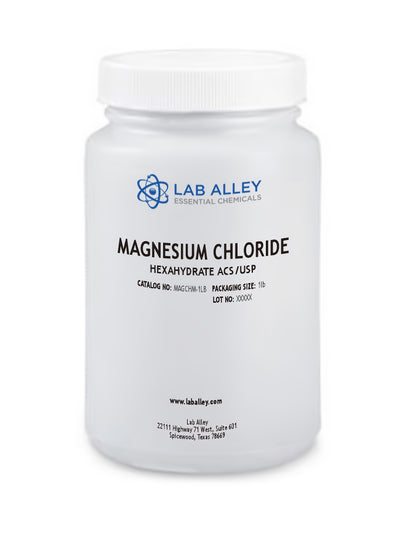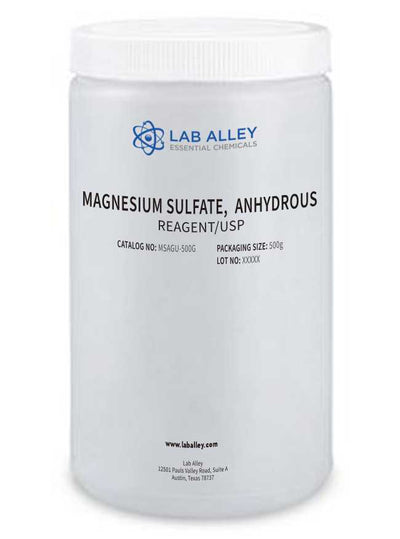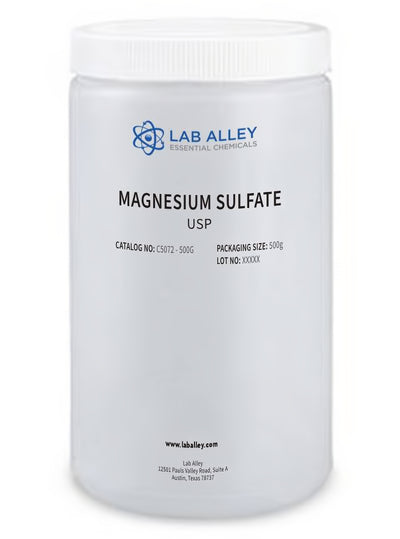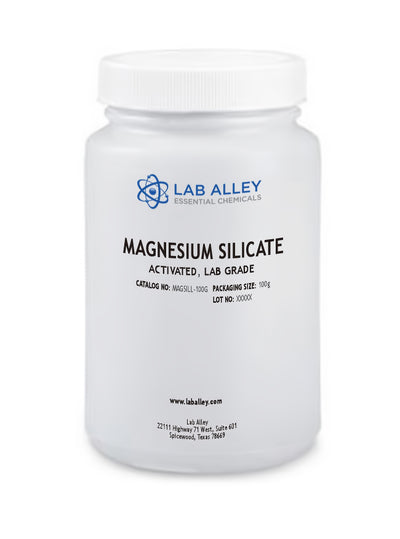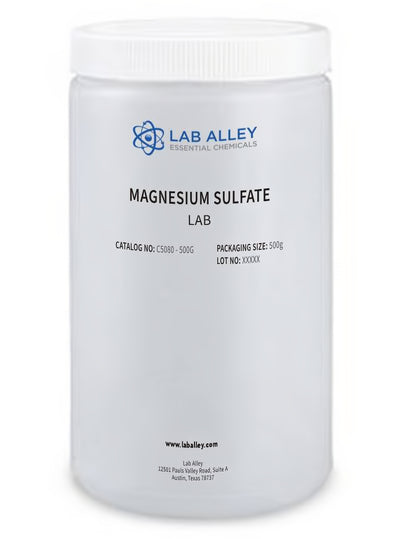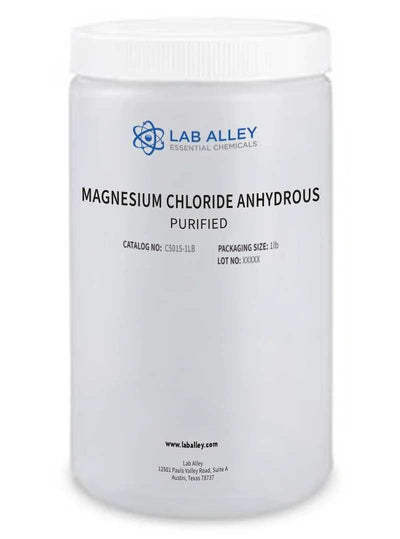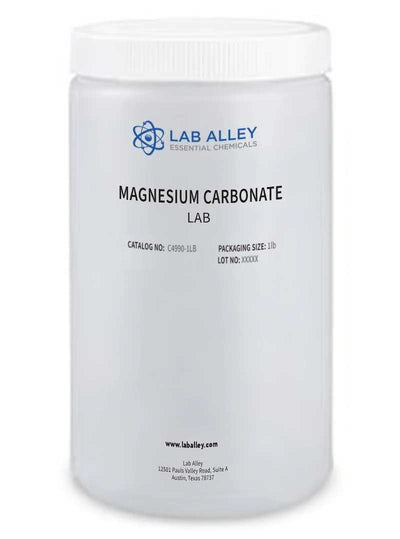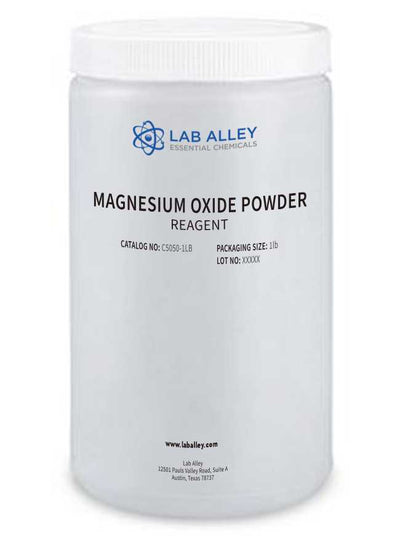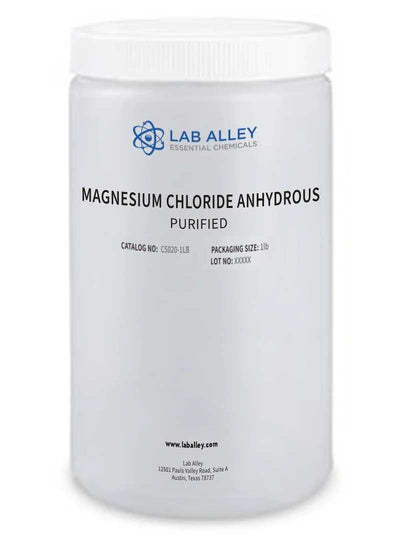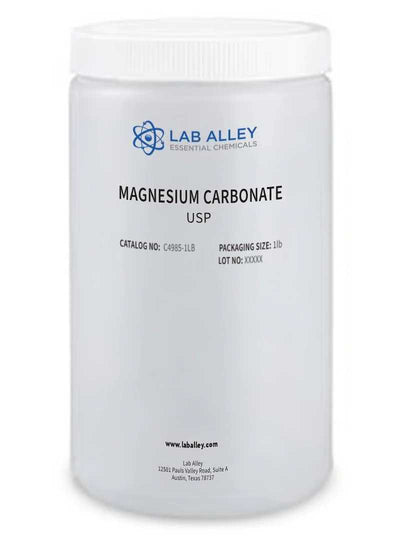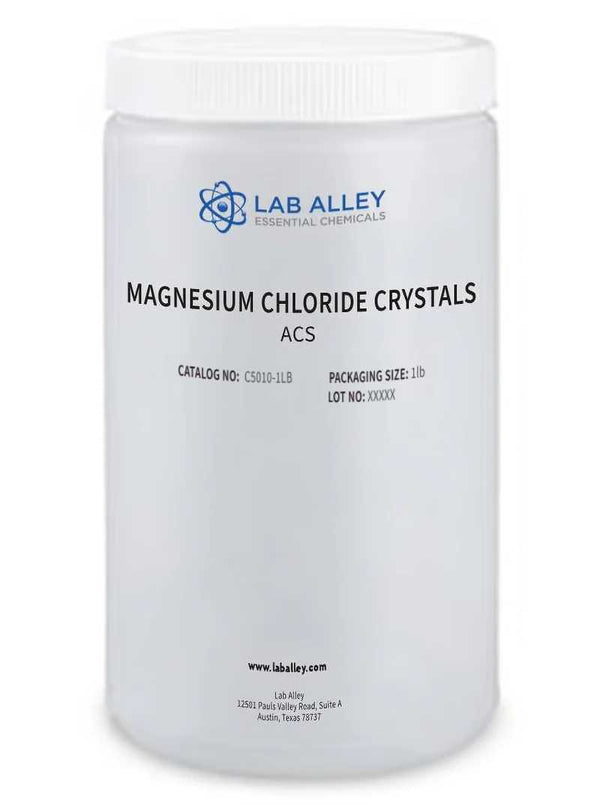
Business Support
Magnesium Chloride Crystals, ACS Reagent Grade
For questions regarding lead time, please contact a member of our Customer Care Team at customercare@laballey.com
Business Support
Description
About Magnesium Chloride Crystals, ACS Reagent Grade
Magnesium Chloride, also known as Magnesium Dichloride Hexahydrate and Dichloromagnesium Hexahydrate, is often available as hexahydrate of Magnesium(2+) Chloride having the chemical formula H12Cl2MgO6 or MgCl2-6H2O. It is a hydrate, a magnesium halide and an inorganic chloride. It appears as colorless to white odorless hygroscopic crystals or flakes and is readily soluble in Water, Ethanol at ambient conditions. It’s a key source of Magnesium that can be conveniently used in a variety of applications.
Chemicals in the Reagent Grade category have high purity and are best suited for analytical purposes. They're useful in research investigations as they produce consistent, trustworthy, and repeatable findings.
COMMON USES AND APPLICATIONS
- Reagent
- Dust control
- Ice control
- Nutritional Supplements
- Synthesis of fertilizers
- Textile and paper industry
- Fireproofing agents
- Cements
- Fire extinguishers
INDUSTRIES
- Food & Beverage
- Industrial
- Oil & Gas industry
- Agriculture
PRODUCT INFORMATION
Customer Reviews and Q&A
Safety and Shipping
Please contact us to request a Safety Data Sheet (SDS) and Certificate of Analysis (COA) for Magnesium Chloride Crystals, ACS Reagent Grade
Business Support
Built for Business.
At Lab Alley, we simplify procurement with custom quotes, credit applications, tax exemptions, and fulfillment support, ensuring on-budget, on-time delivery - your success is our priority.
Apply for Credit
A Lab Alley credit account streamlines purchasing for your business. Our Customer Success Team is available to help you through every step of the process.
Request a Custom Quote
Get a fast, customized quote tailored to your specific needs. Our team ensures accurate pricing and availability to help streamline your purchasing process.

Additional Business Resources
Lab Alley provides access to essential certifications, documents, and other resources to support your business.

Create a Lab Alley Account

RECEIVE exclusive offers, promotions, and discounts on chemicals.

Always have the product you need, when you need it with our AUTOSHIP program.









